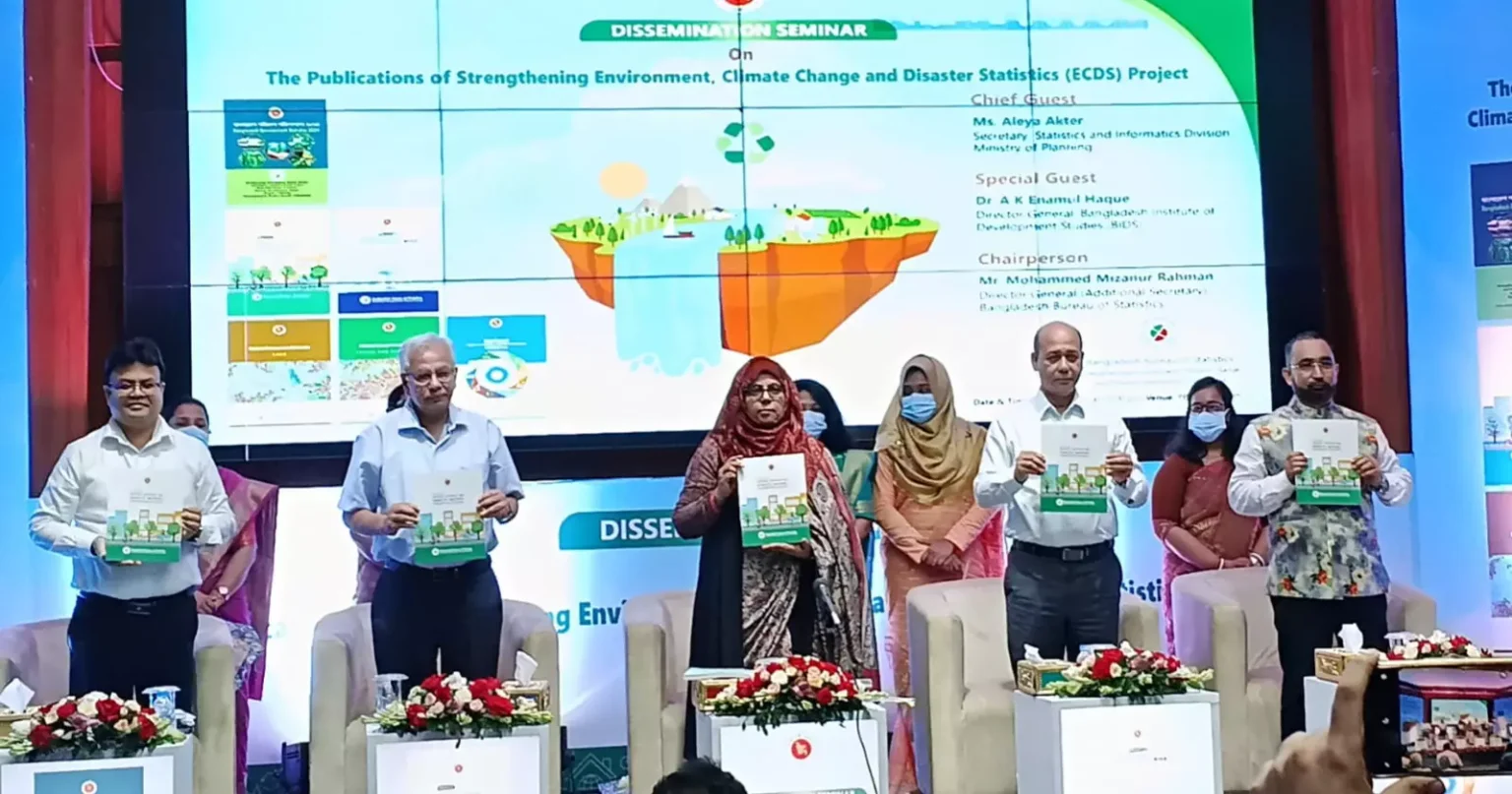A comprehensive survey by the Bangladesh Bureau of Statistics (BBS) has revealed alarming threats to the nation’s food security, showing a 3.75% reduction in agricultural land between 2015 and 2023 due to rapid urbanisation.
The findings were unveiled Sunday at the BBS Auditorium during the dissemination of seven environmental reports under the ‘Strengthening Environment, Climate Change and Disaster Statistics (ECDS)’ project.
The landmark study, Bangladesh’s first detailed environmental accounting initiative, documents multiple ecological crises. Alongside farmland erosion, it reports a 5.41% decline in natural forest cover, partially offset by a 27.36% expansion of social plantations.
The research encompasses critical areas including household environmental patterns, water resource usage, waste management systems, and ecosystem health assessments.
Planning Ministry Statistics Secretary Aleya Akter, presiding as chief guest, emphasised the data’s strategic importance, with BIDS Director General AK Enamul Haque and BBS DG Muhammed Mizanur Rahman underscoring its policy implications.
ECDS Project Director Mohammad Saddam Hossain Khan explained the dual mission: Establishing Bangladesh’s first UN-aligned environmental statistics framework while developing natural resource accounts for land, forests and water systems.
The published reports – including the Household Environmental Survey 2024, Water Accounts Compendium, and Forest & Ecosystem Accounts – reveal systemic challenges. Most critically, the irreversible conversion of fertile land for urban expansion threatens to destabilise agricultural output in a nation already vulnerable to food insecurity.
With climate change accelerating land degradation, experts warn these findings demand immediate policy interventions. The data provides a crucial evidence base for sustainable land-use planning, suggesting urgent measures to protect remaining farmland through zoning regulations and urban growth boundaries. As Bangladesh formalizes its environmental accounting systems, this research marks a watershed moment in evidence-based ecological governance.


